
Adv. Materials Science 2025
Peers Alley Media,Canada

Primary goal of attending an international conference is to present a paper to the experts and influencers. It gives you a platform to exchange your interest-related thoughts, paving the way for possible future collaborations.

Use this platform to build connections with an elite group of wise men and women to enhance your intellect. Young entrepreneurs, this is a great platform to connect with your peers.

Knowledge is Power. Knowledge teaches skills. Skills define excellence. Use this platform to become cognizant of your interest area to achieve excellence in your domain.

Attending a conference give you opportunity to get your abstract or paper published in conference proceedings

Meet and greet a myriad of industry professionals and academia experts with common interest. Every meal will be an opportunity to meet and interact with fellow researchers, attendees and experts.

Expand your professional competency and learn useful tips and tricks of your industry in our skill-building workshops.

Explore insights on recent advancements, new equipment, new techniques, and unpublished data, learn from thought-leaders and get to network with a great line up of speakers.

Our exhibits floor offers the attendees with a dynamic display of the latest products with cutting-edge technology.

Investing in you is the best investment. Peers Alley conferences give the patrons with a feeling of the serendipity of real learning, skill development in strategic workshops, networking and start-up opportunities, thus, is value for money.

Attending the conference gives you much needed break from your regular duties. It also allows you to explore new cities, culture and meet new people. You will feel energized and rejuvenated to return to the university and continue with the job after attending the conference.
Conferences are vital forum for academic researchers and business leaders. "It involves multiple presentations, interactive breakout sessions, hands-on product demonstrations and unrivalled networking opportunities".
We have invited some of the world's most sought-after keynote speakers, experts, brand ambassadors, and industry leaders to share their thoughts and ideas with our conference guests.
Register Now
The rising frequency of chronic diseases such as cancer, autoimmune disorders, and infectious diseases necessitates effective immunotherapy and targeted biologics. In 2023, the global immunology market was valued at USD 97.58 billion. It is expected to expand from USD 103.18 billion in 2024 to USD 257.39 billion by 2032, reflecting a compound annual growth rate (CAGR) of 12.1% over the forecast period. North America led the global market, accounting for 55.39% of the total share in 2023.
Here, the Adv. Immunology 2025 congress plays a critical role in advancing medical science and improving society's health and well-being by bringing new therapies, focusing on improving diagnosis and disease prevention, and understanding the immune system's mechanisms for better patient outcomes and a healthier population.
Theme: Redefining Immunity: Cellular Therapies and Next-Generation Vaccines for a Healthier World.
Sub-themes:

Dear Esteemed Participants and Distinguished Colleagues,
It is our great pleasure to invite you to attend the "3rd Euro-Global Summit on Advances in Clinical and Cellular Immunology which will be held during September 25-26, 2025, in Berlin, Germany". Berlin is an exciting city, known for its numerous cultural institutions and vibrant nightlife and entertainment.
As a participant in the 2024 Euro-Global Summit on Advances in Clinical and Cellular Immunology, I found this meeting to be unique and educational, bringing together investigators from across the globe to share their latest findings. There was ample opportunity for questions and discussions, and most importantly, for the development of global collaborations.
I am looking forward to the next conference in Berlin. I am confident that this will contribute to your professional development and enable you to build new collaborations. I encourage you to join me in attending this conference in 2025.

Dear Esteemed Guests,
It is a great pleasure, honor and privilege to invite you to the "3rd Euro-Global Summit on Advances in Clinical and Cellular Immunology, which will be held on
September 25-26, 2025, in the amazing Berlin, Germany".
I´d like to thank each of the participants for attending the conference Adv. Immunology 2024, during the experts from diferents contries of the world. I am
infinitely grateful for the invitation to participate in this event, it was an enriching experience and a wonderful challenge. The quality of the presentations was
excellent, the speakers were very knowledgeable about the topics and the great experience was evident. It is definitely a space that encourages professional
development in the clinical field of immunology.
I am looking forward to interacting with all of you at this outstanding conference in Berlin, 2025.

Dear Esteemed Participants and Distinguished Colleagues,
It is our great pleasure to invite you to attend the "3rd Euro-Global Summit on Advances in Clinical and Cellular Immunology which will be held during September 25-26, 2025, in Berlin, Germany". Berlin is an exciting city, known for its numerous cultural institutions and vibrant nightlife and entertainment.
As a participant in the 2024 Euro-Global Summit on Advances in Clinical and Cellular Immunology, I found this meeting to be unique and educational, bringing together investigators from across the globe to share their latest findings. There was ample opportunity for questions and discussions, and most importantly, for the development of global collaborations.
I am looking forward to the next conference in Berlin. I am confident that this will contribute to your professional development and enable you to build new collaborations. I encourage you to join me in attending this conference in 2025.

Dear Esteemed Guests,
It is a great pleasure, honor and privilege to invite you to the "3rd Euro-Global Summit on Advances in Clinical and Cellular Immunology, which will be held on
September 25-26, 2025, in the amazing Berlin, Germany".
I´d like to thank each of the participants for attending the conference Adv. Immunology 2024, during the experts from diferents contries of the world. I am
infinitely grateful for the invitation to participate in this event, it was an enriching experience and a wonderful challenge. The quality of the presentations was
excellent, the speakers were very knowledgeable about the topics and the great experience was evident. It is definitely a space that encourages professional
development in the clinical field of immunology.
I am looking forward to interacting with all of you at this outstanding conference in Berlin, 2025.

Dear Esteemed Participants and Distinguished Colleagues,
It is our great pleasure to invite you to attend the "3rd Euro-Global Summit on Advances in Clinical and Cellular Immunology which will be held during September 25-26, 2025, in Berlin, Germany". Berlin is an exciting city, known for its numerous cultural institutions and vibrant nightlife and entertainment.
As a participant in the 2024 Euro-Global Summit on Advances in Clinical and Cellular Immunology, I found this meeting to be unique and educational, bringing together investigators from across the globe to share their latest findings. There was ample opportunity for questions and discussions, and most importantly, for the development of global collaborations.
I am looking forward to the next conference in Berlin. I am confident that this will contribute to your professional development and enable you to build new collaborations. I encourage you to join me in attending this conference in 2025.

Dear Esteemed Guests,
It is a great pleasure, honor and privilege to invite you to the "3rd Euro-Global Summit on Advances in Clinical and Cellular Immunology, which will be held on
September 25-26, 2025, in the amazing Berlin, Germany".
I´d like to thank each of the participants for attending the conference Adv. Immunology 2024, during the experts from diferents contries of the world. I am
infinitely grateful for the invitation to participate in this event, it was an enriching experience and a wonderful challenge. The quality of the presentations was
excellent, the speakers were very knowledgeable about the topics and the great experience was evident. It is definitely a space that encourages professional
development in the clinical field of immunology.
I am looking forward to interacting with all of you at this outstanding conference in Berlin, 2025.

Dear Esteemed Participants and Distinguished Colleagues,
It is our great pleasure to invite you to attend the "3rd Euro-Global Summit on Advances in Clinical and Cellular Immunology which will be held during September 25-26, 2025, in Berlin, Germany". Berlin is an exciting city, known for its numerous cultural institutions and vibrant nightlife and entertainment.
As a participant in the 2024 Euro-Global Summit on Advances in Clinical and Cellular Immunology, I found this meeting to be unique and educational, bringing together investigators from across the globe to share their latest findings. There was ample opportunity for questions and discussions, and most importantly, for the development of global collaborations.
I am looking forward to the next conference in Berlin. I am confident that this will contribute to your professional development and enable you to build new collaborations. I encourage you to join me in attending this conference in 2025.

Dear Esteemed Guests,
It is a great pleasure, honor and privilege to invite you to the "3rd Euro-Global Summit on Advances in Clinical and Cellular Immunology, which will be held on
September 25-26, 2025, in the amazing Berlin, Germany".
I´d like to thank each of the participants for attending the conference Adv. Immunology 2024, during the experts from diferents contries of the world. I am
infinitely grateful for the invitation to participate in this event, it was an enriching experience and a wonderful challenge. The quality of the presentations was
excellent, the speakers were very knowledgeable about the topics and the great experience was evident. It is definitely a space that encourages professional
development in the clinical field of immunology.
I am looking forward to interacting with all of you at this outstanding conference in Berlin, 2025.

Dear Esteemed Participants and Distinguished Colleagues,
It is our great pleasure to invite you to attend the "3rd Euro-Global Summit on Advances in Clinical and Cellular Immunology which will be held during September 25-26, 2025, in Berlin, Germany". Berlin is an exciting city, known for its numerous cultural institutions and vibrant nightlife and entertainment.
As a participant in the 2024 Euro-Global Summit on Advances in Clinical and Cellular Immunology, I found this meeting to be unique and educational, bringing together investigators from across the globe to share their latest findings. There was ample opportunity for questions and discussions, and most importantly, for the development of global collaborations.
I am looking forward to the next conference in Berlin. I am confident that this will contribute to your professional development and enable you to build new collaborations. I encourage you to join me in attending this conference in 2025.

Dear Esteemed Guests,
It is a great pleasure, honor and privilege to invite you to the "3rd Euro-Global Summit on Advances in Clinical and Cellular Immunology, which will be held on
September 25-26, 2025, in the amazing Berlin, Germany".
I´d like to thank each of the participants for attending the conference Adv. Immunology 2024, during the experts from diferents contries of the world. I am
infinitely grateful for the invitation to participate in this event, it was an enriching experience and a wonderful challenge. The quality of the presentations was
excellent, the speakers were very knowledgeable about the topics and the great experience was evident. It is definitely a space that encourages professional
development in the clinical field of immunology.
I am looking forward to interacting with all of you at this outstanding conference in Berlin, 2025.

Frank Reidy Research Center for Bioelectrics; Old Dominion University Norfolk Va, USA

Yale University School of Medicine, USA

Aspiring Scholars Directed Research Program (ASDRP), Human and Life Sciences Fremont, USA

The Lundquist Institute for Biomedical Innovation at Harbor-UCLA Medical Center, USA


Peers Alley Media,Canada
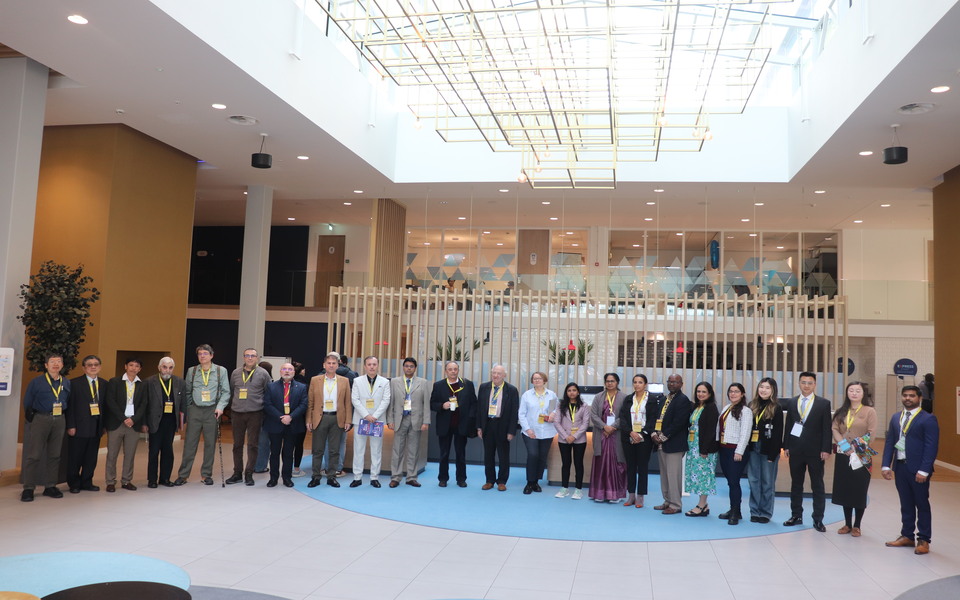
Peers Alley Media,Canada
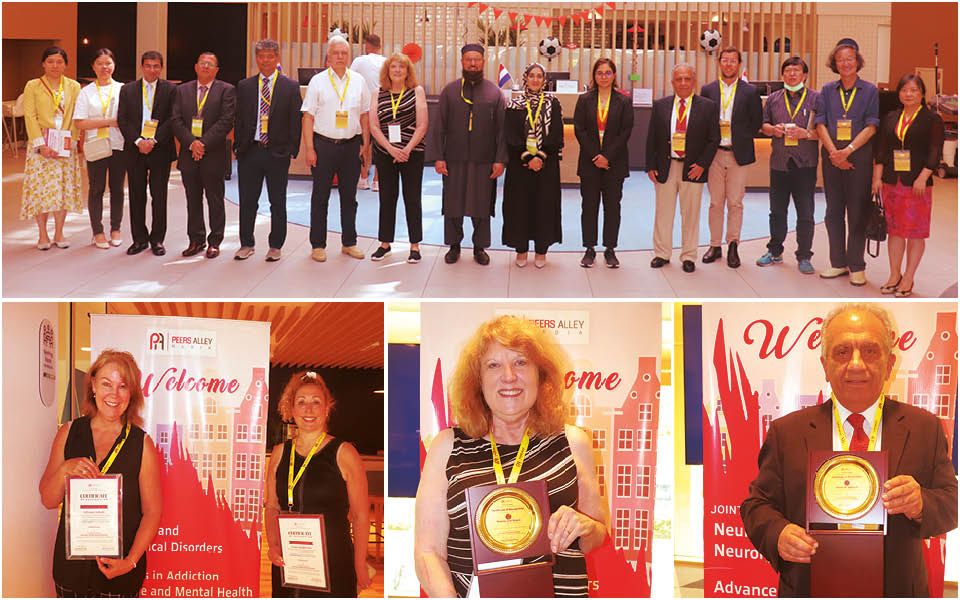
Peers Alley Media,Canada

Peers Alley Media,Canada
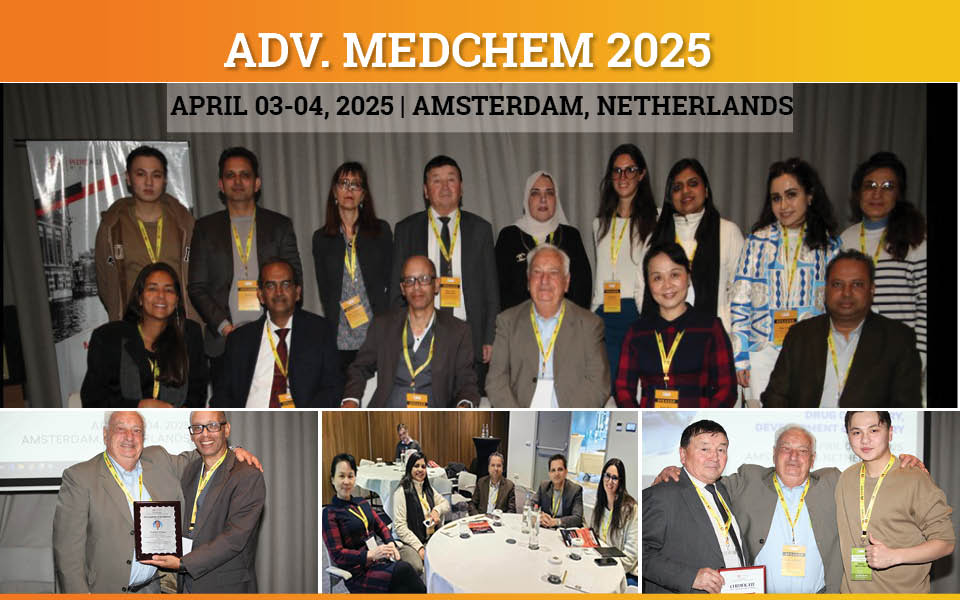
Peers Alley Media,Canada

Peers Alley Media,Canada
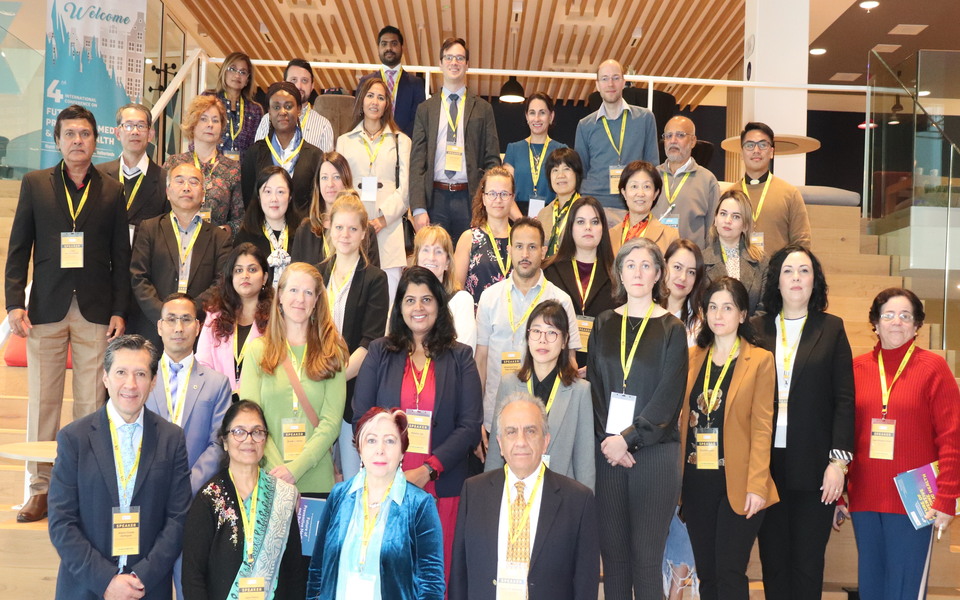
Peers Alley Media,Canada
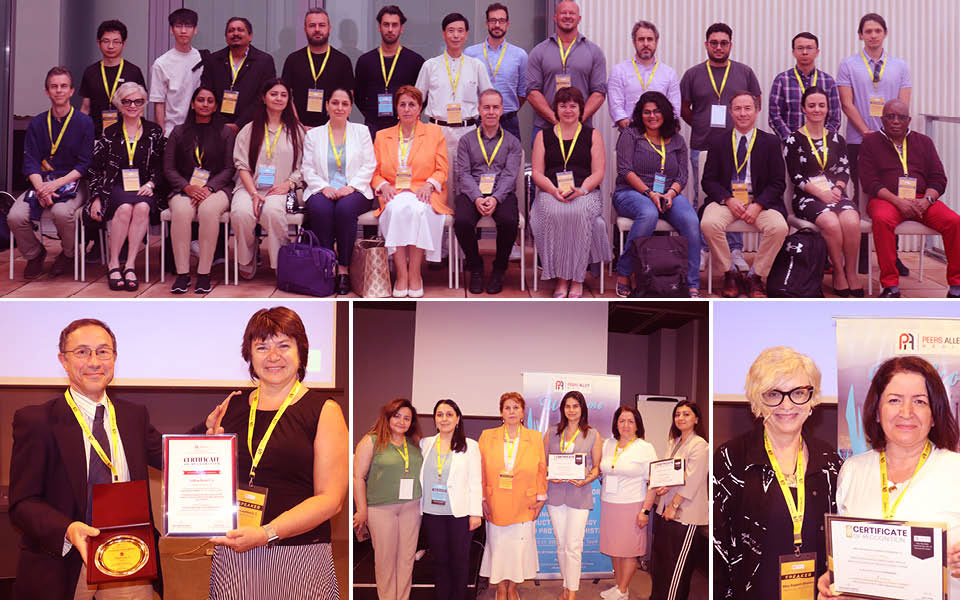
Peers Alley Media,Canada
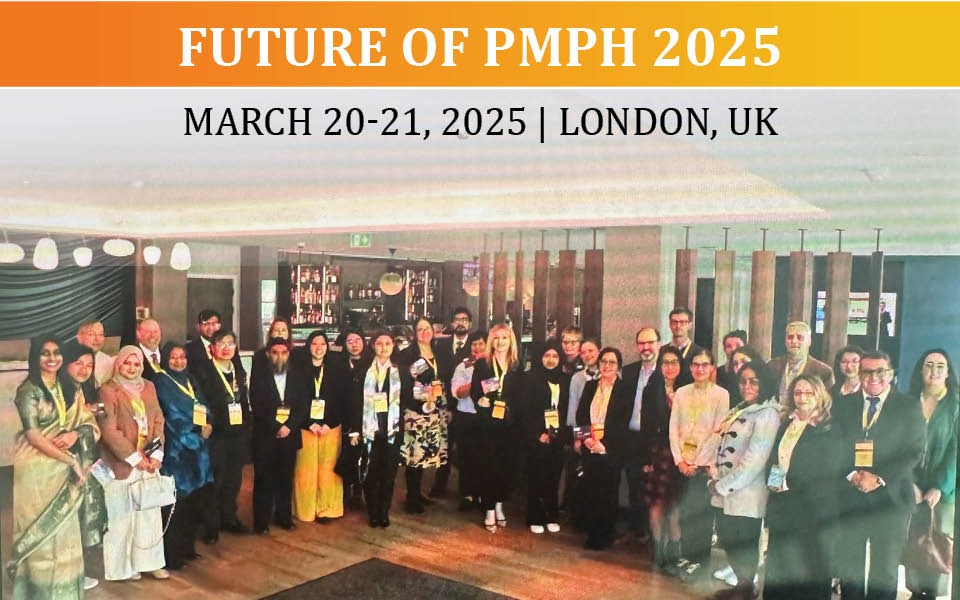
Peers Alley Media,Canada
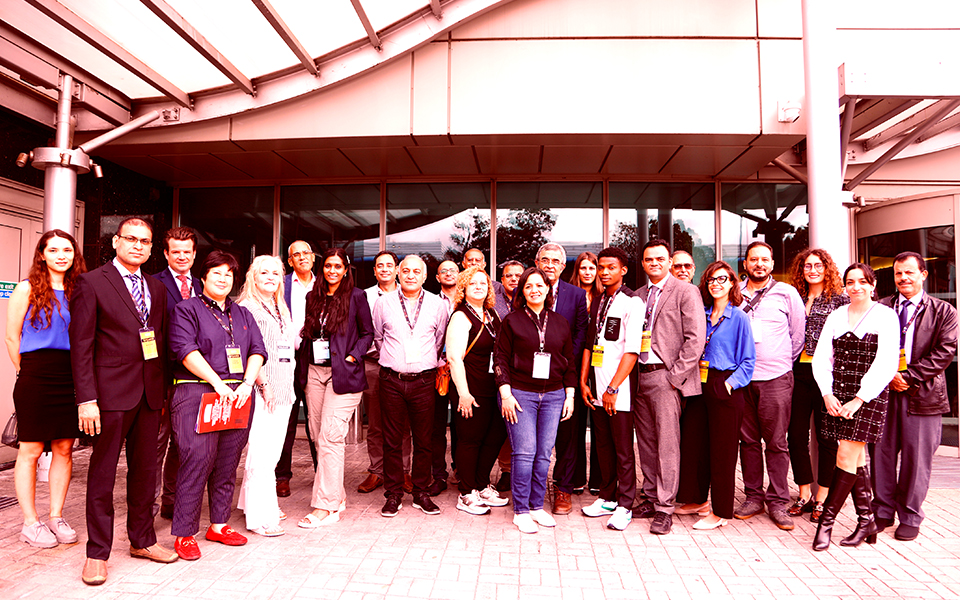
Peers Alley Media,Canada
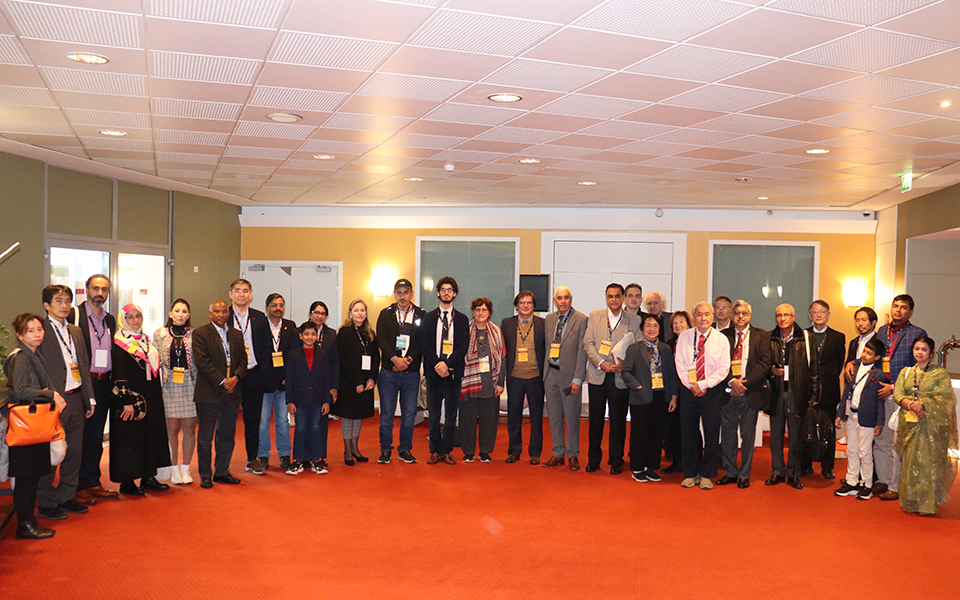
Peers Alley Media,Canada
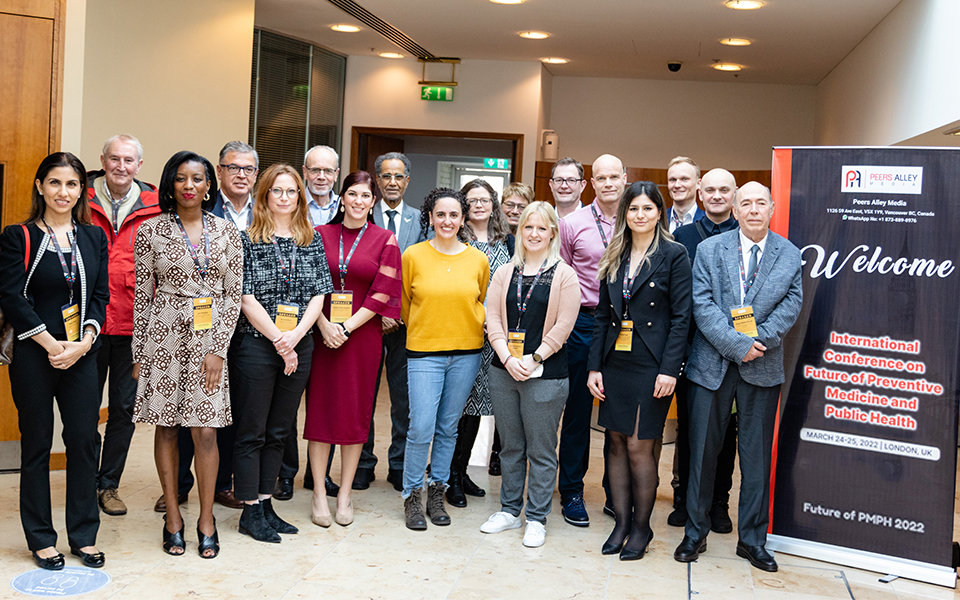
Peers Alley Media,Canada
Contact us now and we will make your event unique & unforgettable
All numbers indicates percentage %
Europe
North America
Middle East
Asia Pacific
Africa
All numbers indicates percentage %
Immunologists
Pathologists & Epidemiologists
Virologists & Microbiologists
Pharmacologists
Residents, Fellows & Post Docs
Faculty, Research Labs & Research Institutes
Physicians, Health Care Professionals & Nurses
Hospitals








